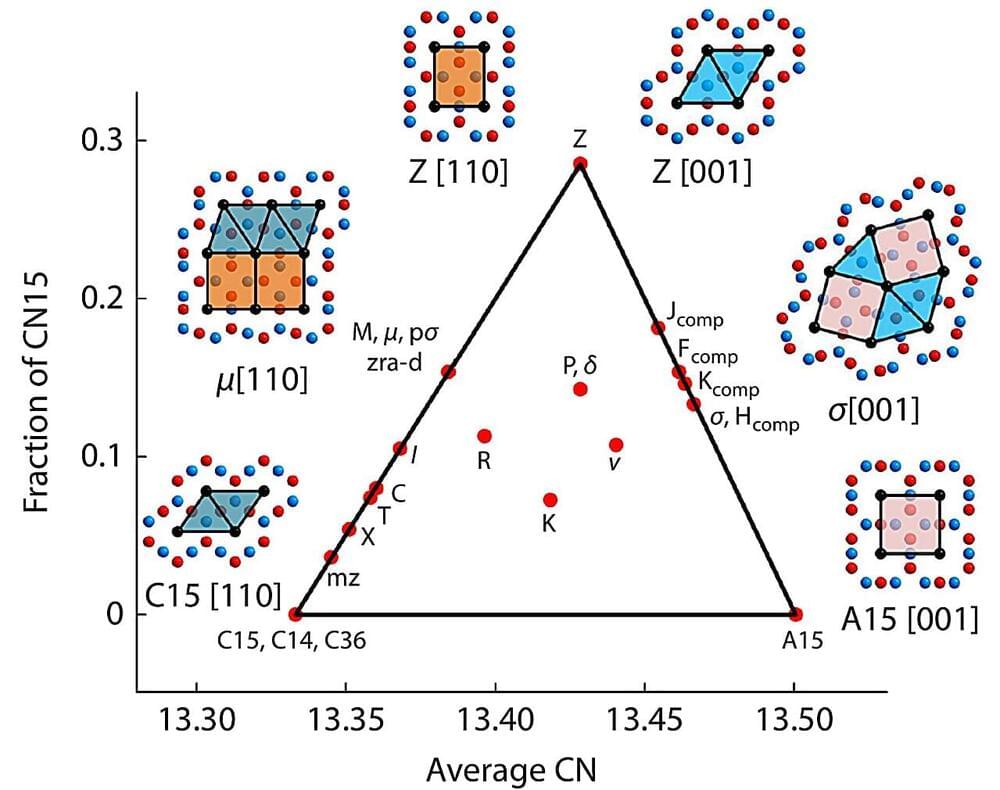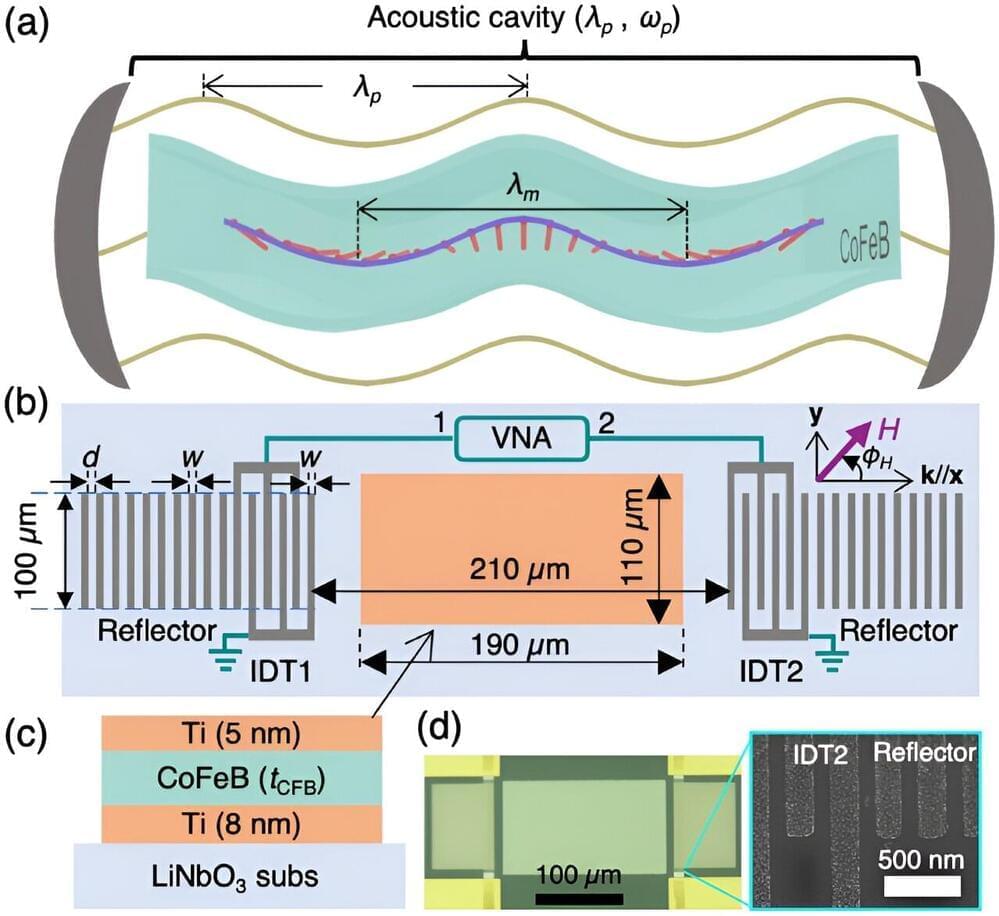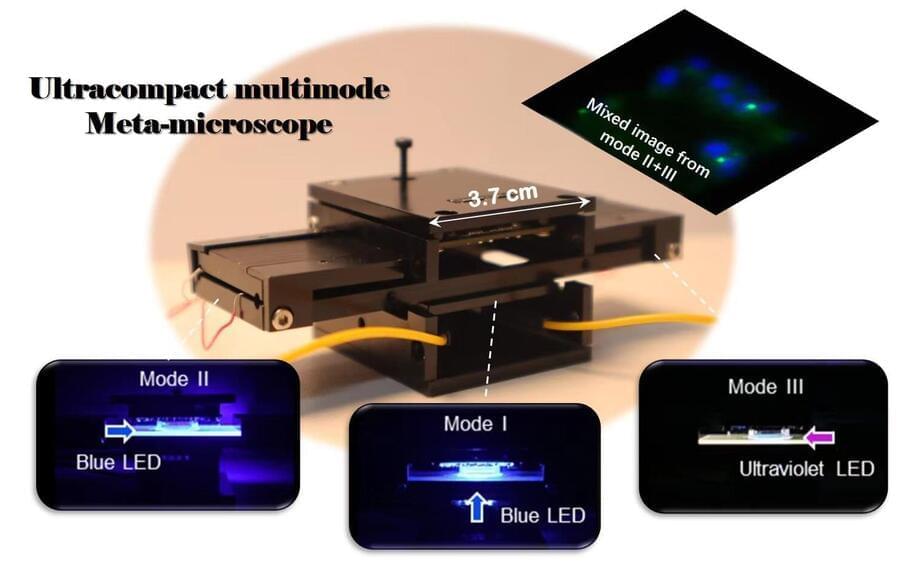Scientists say that long genes — which are more susceptible to DNA damage — might be a main cause of the body’s aging and could play a role in. the development of diseases like Alzheimer’s.
Join us on Patreon! https://www.patreon.com/MichaelLustgartenPhDDiscount Links: At-Home Metabolomics: https://www.iollo.com?ref=michael-lustgartenUse Code: C…
The manifestation of the quantum gravitational field becomes evident when observing phenomena at the Planck’s length scale. Hence, the tiniest constituent of our cosmos, which is not even perceptible, must exist at the scale of Planck’s length.
As traditional top-down approaches like photolithography reach their limitations in creating nanostructures, scientists are shifting their focus toward bottom-up strategies. Central to this paradigm shift is the self-assembly of homogeneous soft matter, a burgeoning technique with the potential to produce complex nano-patterns on a vast scale.
Unlike me, Kurzweil has been embracing AI for decades. In his 2005 book, The Singularity Is Near: When Humans Transcend Biology, Kurzweil made the bold prediction that AI would expand human intelligence exponentially, changing life as we know it. He wasn’t wrong. Now in his 70s, Kurzweil is upping the ante in his newest book, The Singularity Is Nearer: When We Merge with AI, revisiting his prediction of the melding of human and machine, with 20 additional years of data showing the exponential rate of technological advancement. It’s a fascinating look at the future and the hope for a better world.
Kurzweil has long been recognized as a great thinker. The son of a musician father and visual artist mother, he grew up in New York City and at a young age became enamored with computers, writing his first computer program at the age of 15.
While at MIT, earning a degree in computer science and literature, Kurzweil started a company that created a computer program to match high school students with colleges. In the ensuing years, he went on to found (and sell) multiple technology-fueled companies and inventions, including the first reading machine for the blind and the first music synthesizer capable of re-creating the grand piano and other orchestral instruments (inspired by meeting Stevie Wonder). He has authored 11 books.
Life Within Our Consciousness
Posted in robotics/AI
The team of scientists set about investigating this by analyzing 59 early B-type blue supergiants located in the Large Magellanic Cloud, a satellite galaxy of the Milky Way, and creating novel stellar simulations.
“We simulated the mergers of evolved giant stars with their smaller stellar companions over a wide range of parameters, taking into account the interaction and mixing of the two stars during the merger,” study leader and IAC researcher Athira Menon said in a statement. “The newly born stars live as blue supergiants throughout the second-longest phase of a star’s life, when it burns helium in its core.”
The team’s findings suggest that blue supergiants slip into an evolutionary gap in conventional stellar physics — a phase of stellar evolution where astronomers would not expect to see stars. The question is, Can this explain the remarkable properties of blue supergiant stars? It seems the answer is yes.
After decades of slow progress, therapeutic vaccines that direct the immune system to attack tumours could soon become a fixture of cancer treatment.
A team led by researchers from the RIKEN Center for Emergent Matter Science in Japan has succeeded in creating a strong coupling between two forms of waves—magnons and phonons—in a thin film. Importantly, they achieved this at room temperature, opening the way for the development of hybrid wave–based devices where information could be stored and manipulated in a variety of ways.
Versatility and miniaturization of imaging systems are of great importance in today’s information society. Microscopic imaging techniques have always been indispensable for scientific research and disease diagnosis in the biomedical field, which is also stepping towards the integration, portable, and multi-functions.









